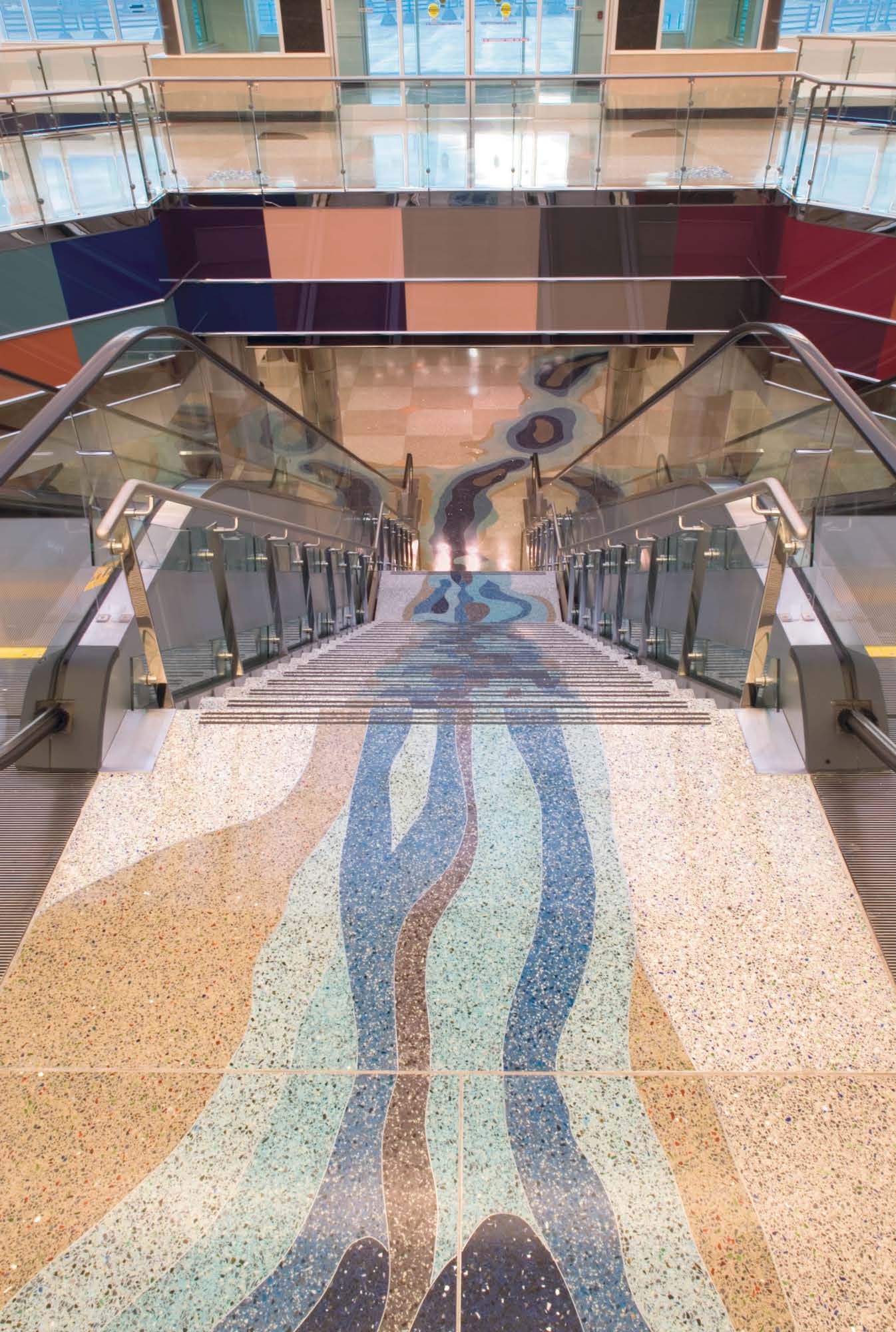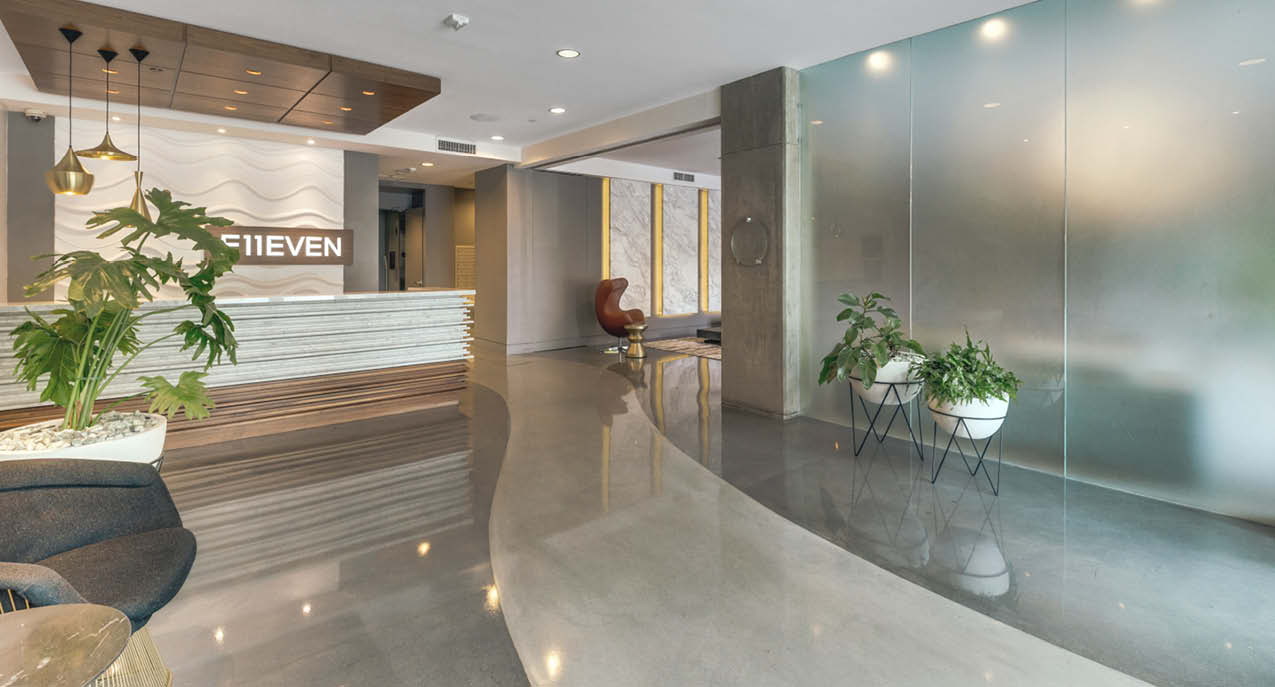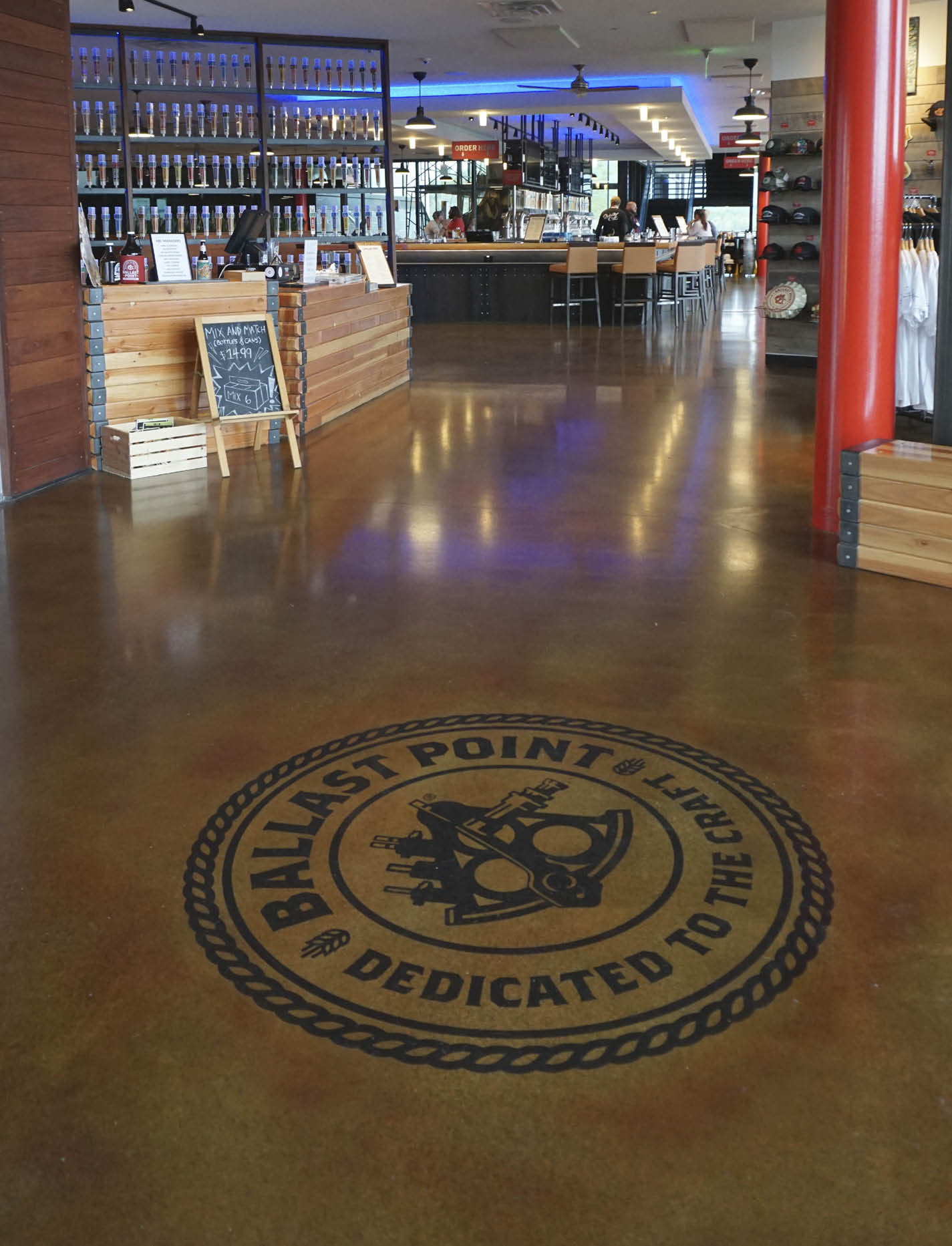
“Never waste a good crisis.” This a quotation that’s been attributed to everyone from Winston Churchill to Barack Obama’s first chief of staff.
Regardless of who said it first, whether you’re currently viewed by your state or local government as “essential” or you’re chomping at the bit to get back to work, you’re probably wondering what the pandemic is doing to your business and how you can best use it to bring additional dollars through the door.
With so much emphasis on people’s physical well-being, it’s easy to focus on the health and medical field. And, there are certainly many products for social distancing and sanitation in the marketplace that can help. Additionally, there are other things out there that you can repurpose to help you and your clients meet these new requirements for social distancing and sanitation.
A matter of prevention
There’s no question about the intended marketplace with Laticrete International’s Spartacote Flex Pure Clinical Plus.
Jeff Bonkiewicz, a Laticrete channel manager, says the low-VOC, low-odor polyaspartic aliphatic polyurea with anti-microbial technology has been on the market for several years based on the manufacturer’s realization of need. However, with the current pandemic, it has become a best-seller.
“We can’t make it fast enough,” says Bonkiewicz. “We have several hospitals that have already installed it.”
On the medical side, he says building areas where it enjoys a great deal of popularity range from hallways to patient bathrooms, although currently it’s also seeing heavy use in labs and clean rooms. Nonmedical uses include school bathrooms and locker rooms.
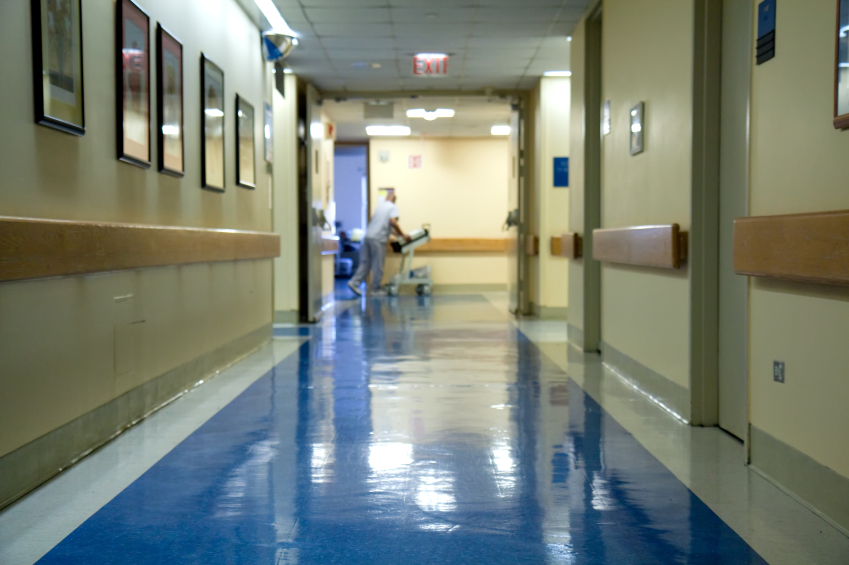
Its big advantage is it’s anti-microbial. Because the formulation is proprietary, Bonkiewicz says he can’t say much about that. Beyond that it’s designed to mitigate microbials and bacteria in the floor coating to a level of 99.99 percent. And, he adds, that level of protection remains active for the lifetime of the floor coating.
For installers, it also offers another big advantage: fast return to service.
“It’s fast-cure,” he says. “If a contractor really wanted to get after a job, he could do it in a day and certainly over a weekend. The quicker you can return a floor to service, the more they like you.”
If low toxicity is key
While the Spartacote product has been aimed at medical facilities, Green Chemistry Innovations in Los Angeles is also finding additional markets for its new GSPEC Flooring Systems (Green Self-leveling Polyurethane Epoxy Cement) and a new type of hardener called Uramines used to cure certain coatings, potting compounds, foam and adhesives.
Company president Scott Kummer says what sets GSPEC apart is that it’s an epoxy-polyurethane hybrid. That hybrid provides the high-chemical tolerance, hardness and anti-microbial properties of an epoxy, while it maintains the high flexural strength of a polyurethane without the toxic isocyanates typically used in urethanes. This makes it yet another of the products for social distancing and sanitation.
The main advantage Kummer sees with his product is its high-chemical tolerance, which is why it’s making its mark in tougher industrial applications such as aerospace. Another area where it’s popular is food processing where there’s high thermal shock as floors are power-washed every day with hot water.
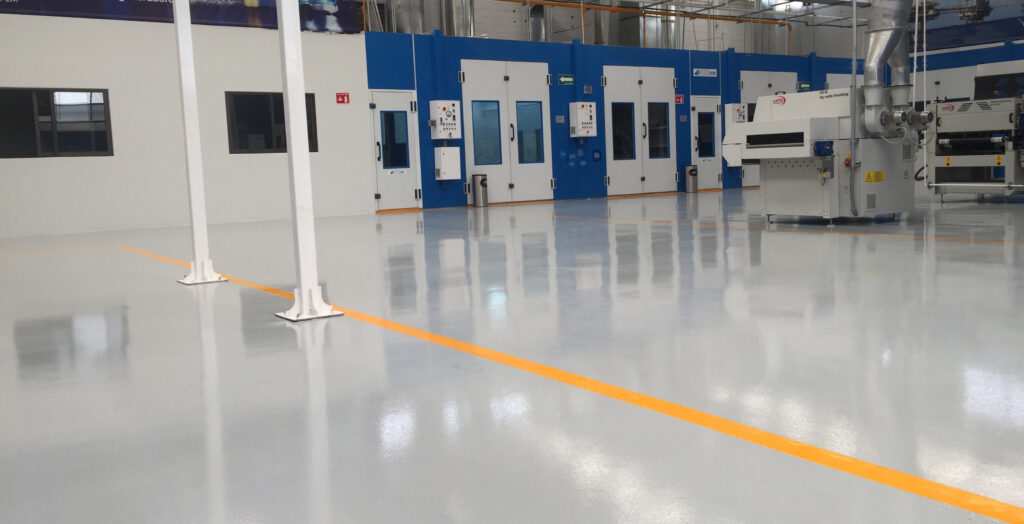
Kummer adds that the company is doing a biochemical research lab in Hawaii. He finds that many of his clients choose GSPEC because of its low toxicity. However, he often finds that medical applications are looking for less-expensive options.
“The biggest advantage we have is that we’re environmentally friendly,” he says. “With most polyurethanes the VOCs are extremely high, and they use isocyanates, but we’re ultra-low (in VOCs) and we use no isocyanates. In addition, we simplify the application process by using just one resin that can create resinous flooring and create urethane cement and polished concrete just by adding our bag mix to it.”
Yet another of the products for social distancing and sanitation is Solid Solutions Products E-Z Pour. Solid Solution Products in Anaheim, California, is finding the medical market is a growing one for its joint filler. But, then again, says company president Brian Bowers, his product, EZ-Pour, is applicable any place that has polished concrete floors.
“You could say there’s a pandemic of joint separation all over the place,” says Bowers. He adds that he has photographed the problem everywhere from the lobbies of headquarter buildings for Silicon Valley technology giants and courthouses to college dorms and cafeterias — and even people’s homes.
The problem he sees with most joint fillers is that whether they’re polyureas or hybrids, they’re aromatic. This means they set very fast with minimum adhesion, elongation and tensile strength. The result: they show joint separation or cohesive failure in as short as six months. They can also discolor.
By comparison, EZ-Pour, which utilizes aliphatic chemistry, creates a joint filler that while slower to cure, offers up to 600 percent elongation, with higher tensile- and tear-strength and no discoloration.
“We have projects going back two and three years that have no joint separation or cohesive failure,” Bowers says. “The best thing is not to have those cracks for bacteria and mold to grow. If people would use my aliphatic polymers, they wouldn’t have joint separation or the cohesive split that allows them to grow.”

Safer and easier
While there are some products for social distancing and sanitation make for a safer, more-germ-free result, there are others that make projects easier. Some companies, such as SpeedCove in Placerville, California, and Makinex Construction in Torrance, California, have products that do both.
Doug Standal, president of SpeedCove, explains that his company has been making preformed coves in 1-, 4-, 6- and 8-inch heights with a 1-inch radius since 2000.
“When they trowel-coat by hand, they trowel to a 1-inch radius. We matched that with our preformed system, and subsequently have saved people a lot of money on time and labor,” Standal says. “We can get a four-day job done in half the time. It’s another way for people to return to service faster.
“Right now, pharmaceutical is big for us,” he says. “With the pandemic, pharmaceutical laboratories are going up everywhere, and we can help them create the ultimate, easy-to-clean most-sanitary floor possible.”
Coupled with a fast-drying epoxy system, the coves are ideal for projects such as commercial kitchens and bathrooms.
A case in point is a job where SpeedCove and Laticrete, through its Spartacote Flex Pure Clinical Plus, were the suppliers of a job by RHI Flooring to help transform an under-utilized floor at Mercy Medical Center in Baltimore. They converted this space into 32 new patient rooms with adjoining private bathrooms in two weeks. Along with its coves, SpeedCove also supplied custom door sills for each of the bathrooms.
Standal compares his part of the job to helping create bathtub-like floors in the bathrooms that are easy to clean.
“They use epoxy floors that are seamless,” he says. “The idea is to make them easy to mop. If it’s easier to clean it’s more likely to be cleaned. We’re just part of an ultimate flooring system.”
Finding new uses
Makinex, which is short for “MAke INefficiencies EXtinct,” has taken several of its products and found ways to use them to support people out in the field while protecting them from the coronavirus.
A great example is its Hose 2 Go, says Dani Planto, the company’s marketing manager. The Hose 2 Go was originally for hooking up to a saw or core drill to reduce silica dust. However, it’s now finding additional life as a hand-washing station that requires no electricity, no batteries and no pump.
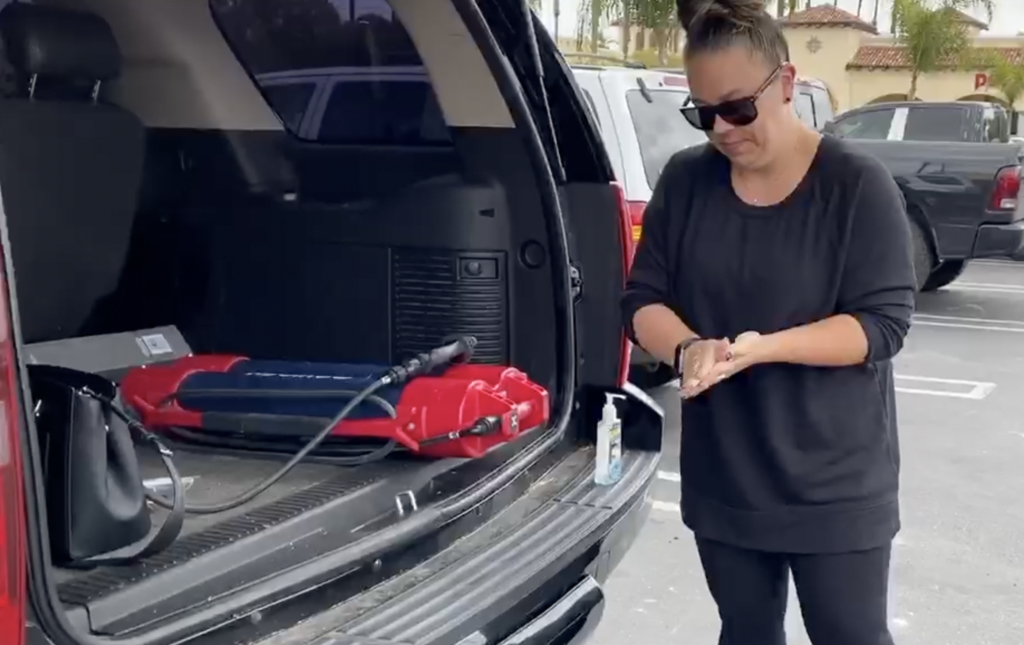
“You can fill the Hose 2 Go from a normal garden hose in 30 seconds,” Planto says. “Once you fill the unit, it creates enough pressure to put out a constant flow. Then it provides the perfect solution for hand-washing around the job site.”
The company is using them in its own warehouse, where employees must wash their hands every 30 minutes for safety.
One person handtruck
The idea of having to lean-in with another masked employee to load heavy equipment doesn’t sound appealing. Now, Makinex offers a hand truck that can lift up to 310 pounds. It needs just one person to operate, allowing for the option of curbside pickup.
“A lot of rental yards are using it to lift and load equipment without customers ever getting out of their vehicle,” she says. “There’s no need for assistance or to interact.”
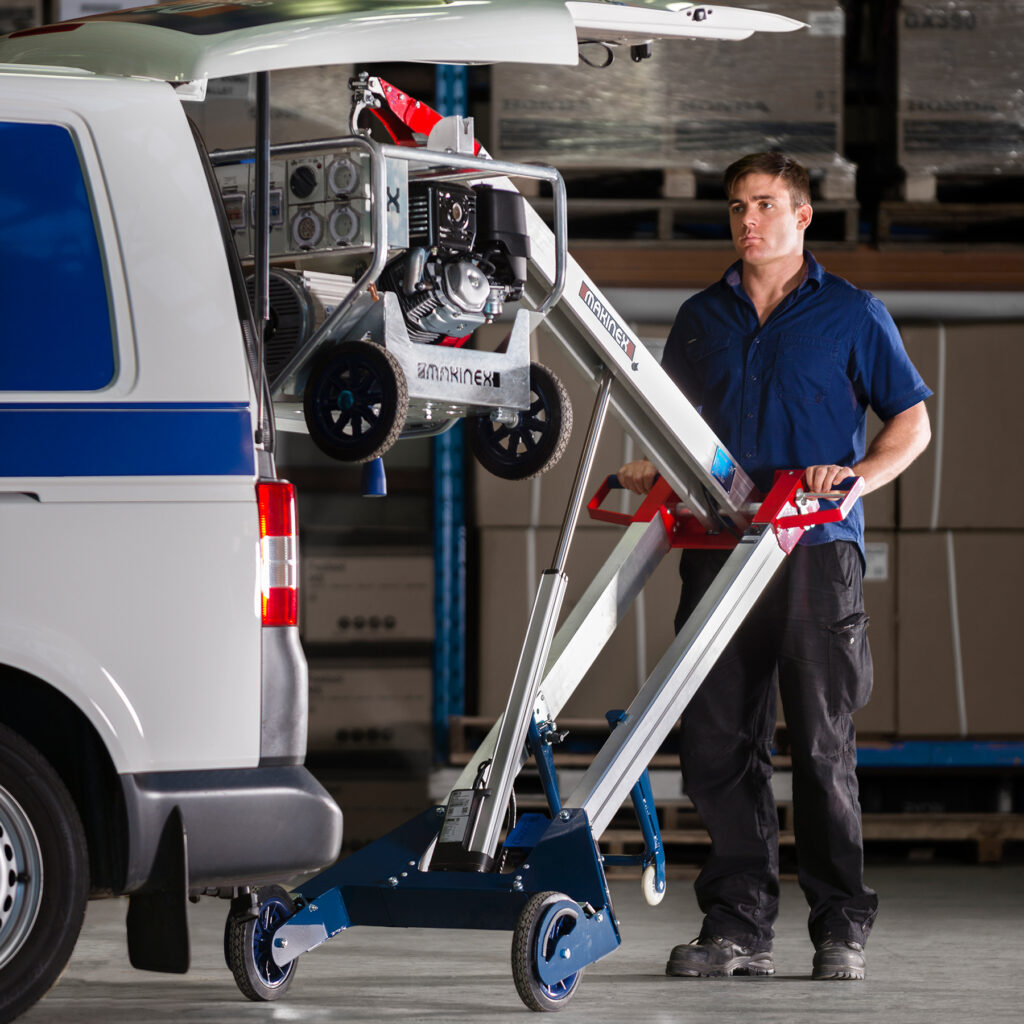
The Dual Pressure Washer
Still another Makinex item is a dual pressure washer.
“This was the first pressure washer to have both a rotary and a wand cleaner in one,” Planto says. “It can do any type of exterior surface cleaning. We have one model that goes up to 2,500 psi. We also have one that goes to 4,000 psi, and those both have adjustable pressures.”
Planto concludes by saying that Makinex remains committed to making the job faster, safer and easier with equipment that’s innovative and versatile — well beyond the defeat of the coronavirus.
Read the full article at https://www.concretedecor.net/departments/concrete-coatings/hygiene-centric-products-can-help-achieve-sanitation-social-distancing/

